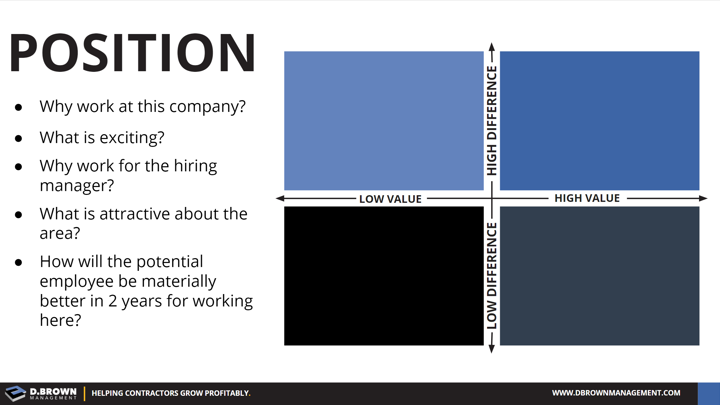Contractors are in an all out war for talent. The winners will be those contractors that master recruiting, retaining and development at both the craft and leadership levels. This has been widely discussed across many industries since McKinsey started their research in 1997 later published in “The War for Talent”.
The first thing a contractor must do is answer these 5 Critical Questions about talent.
Just getting these answers is very hard. Beyond that you must force-rank them into the various categories on the positioning matrix. What you are looking for are the things specifically about your business that are:
- Highly valued by current and potential team members.
- True differentiators between you and the other contractors in the market.
It is often hard to see these differentiators yourself because you live them every day. This is where a great 3rd party facilitator can really help a company define their competitive position for talent. Tim Harris has done a great job with several of our client and is constantly challenging our team.

